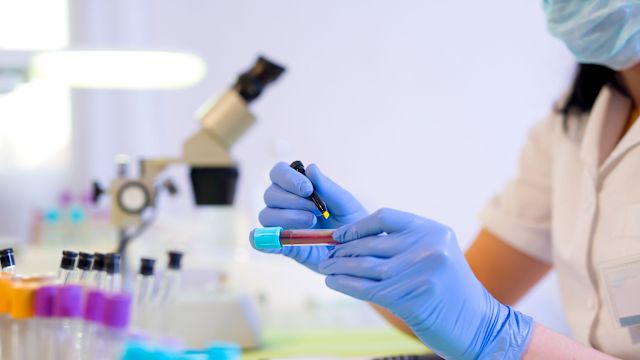Updated on October 14, 2024
Immunotherapy is a treatment approach for cancer that works by improving the immune system’s ability to locate and destroy cancer cells in the body.
Immunotherapies are used to treat many different types of cancer, including some types of non-Hodgkin’s lymphoma (NHL). NHL is a blood cancer, and one of the more common forms of cancer in the United States.
NHL begins in the lymphocytes, white blood cells that are part of the immune system. There are two main types of lymphocytes, B-cells and T-cells, and lymphoma can begin in either type. It can also begin in a third type of lymphocyte, called natural killer cells, but this type of lymphoma is rare.
There are more than 70 different types of NHL, and different immunotherapy treatments are used to treat certain types.
- Some immunotherapies utilize monoclonal antibodies. Antibodies are proteins that help our bodies fight foreign substances, like germs. Monoclonal antibodies are made in a lab and added to the immune system. There, they work to destroy cancer cells and stop the growth and spread of cancer.
- Other immunotherapies work by boosting the function of the immune system. These treatments can be used with some chemotherapy drugs. Or, they can be used on their own when a cancer stops responding to treatment.
Then there’s chimeric antigen receptor T-cell therapy. Often called CAR T-cell therapy, it’s another, rapidly evolving type of immunotherapy.
CAR T-cell therapy
To understand how CAR T-cell therapy works, it helps to know a few key terms.
- T-cells. T-cells are a type of lymphocyte, or white blood cell. They help your immune system kill cells that are infected with viruses or have become cancerous.
- Receptor. A receptor is tiny piece of protein that is part of a cell’s structure. Specific receptors bind with specific substances. Receptors are important in targeted cancer treatments because they allow medicines to find and attach to cancer cells.
- Chimeric antigen receptor (CAR). This is a receptor that’s made in a lab. It binds with specific proteins found on cancer cells.
Here’s what happens when a person receives CAR T-cell therapy:
- First, they have a blood sample taken.
- That sample is sent to a lab, where T-cells are extracted from the blood.
- CAR is then added to those T-cells, which programs the cells to attach to cancer cells.
- A large amount of these modified T-cells are grown in the lab.
- Those modified T-cells are then given to the person through an infusion.
Available CAR T-cell therapies
There are six CAR T-cell therapies that have been approved by the U.S. Food and Drug Administration (FDA) for the treatment of blood cancers. The first was tisagenlecleucel in 2017, which was given the go-ahead to treat children and young adults with certain types of leukemia. Many more CAR T-cell therapies are being developed or tested in clinical trials.
As is the case when treating any type of cancer, the choice of treatment depends on many factors. These include a person’s age, overall health, and the characteristics of their cancer.


